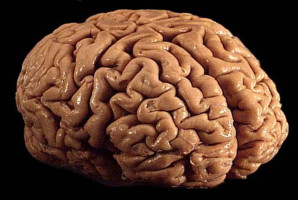
A new editorial paper was published in Oncotarget's Volume 14, entitled, “Targeting H3K27me3 loss in paediatric brain tumours - a perspective on epigenetically guided cancer therapy.”
High-grade tumours of the central nervous system, including medulloblastoma, ependymoma and DMG (diffuse midline glioma, formerly known as DIPG (diffuse intrinsic pontine glioma)), constitute a major challenge in paediatric oncology. They are characterised by an aggressive growth and high relapse rates and claim the lives of many paediatric cancer patients.
Both medulloblastoma and ependymoma are treated with surgical resection followed by adjuvant radiation therapy. DMG, on the other hand, diffusely infiltrates the brain stem making a resection virtually impossible. Thus, radiotherapy is the primary treatment modality for this tumour. While radiation temporarily attenuates the progression of DMG this brain cancer remains incurable and most children succumb to their disease.
In his new editorial, Dr Michael Goldstein from Johns Hopkins University School of Medicine discusses the extensively investigated molecular profiles of the aforementioned paediatric brain tumours demonstrating distinct epigenetic traits.
“Strikingly, a global loss of H3K27 tri-methylation (H3K27me3) as a result of the dominant-negative histone H3K27M mutation was found to be a hallmark of DMG occurring in the majority of the tumours.”
H3K27me3 is a product of the EZH2 histone methyltransferase affecting multiple cellular processes including transcription, chromatin structure and DNA damage response. Similarly, the aggressive PFA ependymoma subgroup is characterised by a lack of H3K27me3 due to an overexpression of the EZHIP protein that acts as an EZH2 inhibitor whereas less aggressive PFB tumours retain normal H3K27me3 levels. However, no comprehensive analysis of H3K27me3 expression patterns in medulloblastoma has been performed and the significance of this epigenetic mark in paediatric brain tumours has remained unknown.
“To address this, we have investigated the levels of the H3K27me3 histone mark and its role in treatment response of non-WNT/SHH medulloblastoma comprising group 3 and group 4 tumours. We demonstrated that about 50% of the tumours in patients with group 3 and group 4 medulloblastoma are H3K27me3 deficient. Strikingly, loss of H3K27me3 was associated with high relapse rates and poor survival.”
Source: Impact Journals LLC
We are an independent charity and are not backed by a large company or society. We raise every penny ourselves to improve the standards of cancer care through education. You can help us continue our work to address inequalities in cancer care by making a donation.
Any donation, however small, contributes directly towards the costs of creating and sharing free oncology education.
Together we can get better outcomes for patients by tackling global inequalities in access to the results of cancer research.
Thank you for your support.